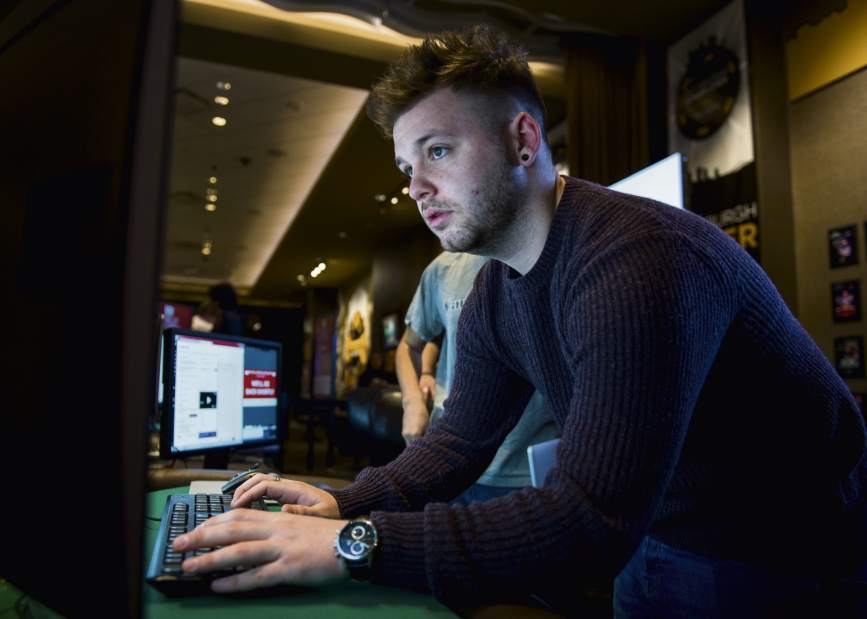CMU team publishes paper on how their poker-playing AI beat the best humans
Poker players rarely reveal their secrets or strategy.
But that's just what Libratus, possibly the best poker-playing artificial intelligence, did.
Tuomas Sandholm, a Carnegie Mellon University professor of computer science, and Noam Brown, a Ph.D. student in computer science at CMU, published a paper in Science that detailed how Libratus managed to beat four of the best no-limit Texas Hold'em poker players in the world this year.
In January, Libratus squared off against Jason Les, Dong Kim, Daniel McCauley and Jimmy Chou, four of the top professional, no-limit Texas Hold'em poker players in the world, during the 20-day, 120,000-hand Brains vs. AI challenge at Rivers Casino on Pittsburgh's North Shore. Libratus crushed the humans.
The humans never led. They came close on the sixth day of the challenge, but then the computer opened up a huge lead and never looked back. At the end of 20 days, Libratus has nearly 1.8 million in chips. The top-performing human, Dong Kim, lost about 86,000 chips.
So how did Libratus do it ? First, the AI made the game easier to understand.
There are 10(161) potential outcomes in the game of poker — that's a one followed by 161 zeros, potential outcomes in a game of poker. Libratus grouped similar hands, like a King-high flush and a Queen-high flush, and similar bet sizes to cut down that number.
Libratus then created a detailed strategy for how it would play the early rounds of the game and a less-refined strategy for the final rounds. As the game nears the end, Libratus refined the second strategy based on how the game had gone.
A third strategy was at work as well. In real-time, Libratus created another model based on how its play stacked up against the play of the humans. If the humans did something unexpected to Libratus, the AI accounted for it and built it into the strategy.
Instead of trying to exploit weaknesses in the play of the human, Libratus focused on improving its play.
Libratus wasn't just fun and games. It was serious science. The AI isn't poker-specific, Sandholm and Brown wrote.
"The techniques that we developed are largely domain independent and can thus be applied to other strategic imperfect-information interactions, including non-recreational applications," Sandholm and Brown concluded. "Due to the ubiquity of hidden information in real-world strategic interactions, we believe the paradigm introduced in Libratus will be critical to the future growth and widespread application of AI."
Aaron Aupperlee is a Tribune-Review staff writer. Reach him at aaupperlee@tribweb.com, 412-336-8448 or via Twitter @tinynotebook.




